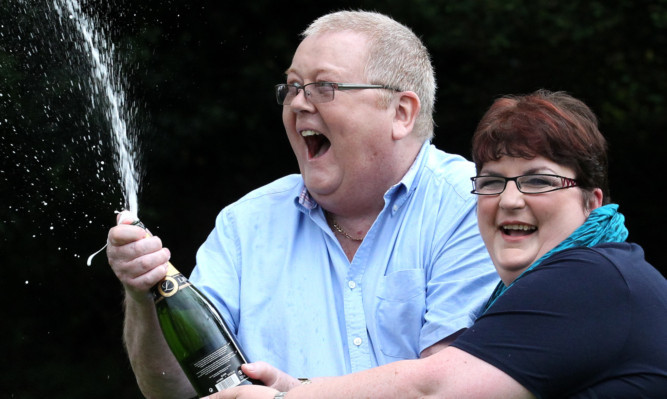A couple who won £161 million on the Euromillions lottery have donated £1 million to the pro-independence campaign, it has been revealed.
SNP supporters Chris and Colin Weir, who claimed the prize in 2011, have each given £500,000 to Yes Scotland. The campaign group has also netted £250,000 from long-time SNP donor and investment manager Angus Tulloch.
Two individuals, Alexander Adam and William Wilson, also donated £25,000 and £8,000 respectively.
Meanwhile, the SNP funded the start-up and staffing costs of Yes Scotland, including its official launch in May last year, to the tune of £342,797, taking the total to £1,625,797.
A further 7,000 smaller donations have boosted the campaign funds by an additional £112,000.
Yes Scotland said the donations, covering the period from the launch until the end of March 2013, were made directly to the campaign, which has been self-financing since September last year.
The publication of the funds comes after it was revealed that the rival Better Together campaign has amassed donations totalling £1,118,451, including £500,000 from oil trader Ian Taylor.
Neither campaign is legally required to disclose information on funding outside of the regulated period of campaigning, which begins 16 weeks prior to the referendum on September 18, 2014.
Yes Scotland chief executive Blair Jenkins said: “Thousands of people in Scotland have donated to the Yes Scotland cause and have given what they can according to their financial means. We are deeply appreciative to each and every one of them.
“Although we will not be in the regulated period of the campaign until 16 weeks before the referendum, I said when I took up my appointment that we intended to be transparent about funding and that is why we are publishing this information today.
“The information given today also reflects the fact that Yes Scotland is a self-financing campaign and that we are being funded by Scotland for Scotland.
“That, in our view, is how it should be and why, unlike our opponents, we are not prepared to accept large donations from people outside Scotland.”
Mr Jenkins said less than 1% of donations have come from overseas, and in most cases these were from expatriate Scots.
He said: ‘We believe the appropriate position is that both campaigns should agree that any donation above £500 – the legally-recognised level over which money given becomes a ‘donation’ – should come only from those registered to vote in Scotland’s referendum. Yes Scotland is sticking firmly to that.”
He added: “In these difficult economic times, it is very encouraging to know that people have reached out and given what they can, but there is a still a long way to go and a lot of work to do.”
